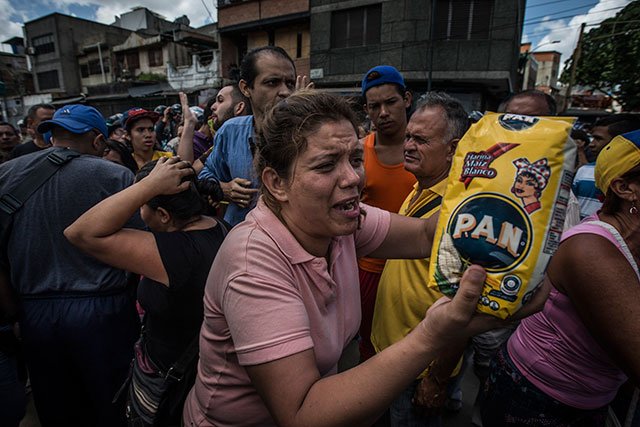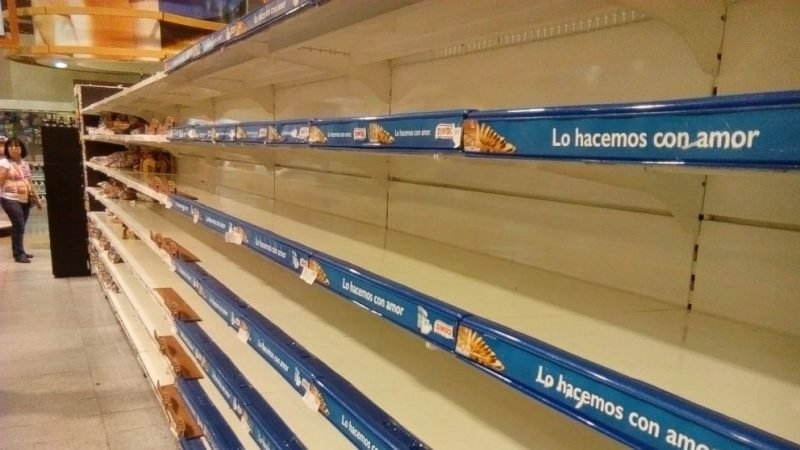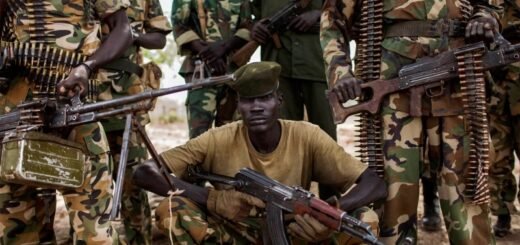Venezuela – The human cost of bad economics

A country sitting on the world’s biggest oil reserves which was one of the fastest rising Latin American economies with a relatively stable democracy is now the region’s poorest performer in terms of GDP growth per capita. Venezuela’s fall is the single largest economic collapse outside of the war in at least 45 years. To err is human, they say, but what is the cost of overspending, lowered oil prices and political unrest all combined? It not only triggered a decline for the once-prosperous nation but the country is experiencing the worst economic crisis in its history, with an inflation rate of over 400 percent and a volatile exchange rate.

The discovery of an oil well in the Maracaibo basin of western Venezuela in the 1920s changed the destiny of the country. It began gushing 100,000 barrels of oil per day, indicating the massive reserves beneath the nation’s surface. Then-dictator Gen Juan Vicente Gomez allowed more than 100 foreign oil companies into Venezuela and, by 1928, Venezuela became the world’s second-biggest petroleum exporter. This was followed by the overthrow of brutal, corrupt Venezuelan dictator Marcos Pérez Jiménez and the election of Romulo Betancourt as the country’s president who was also known as the father of Venezuelan democracy. Come 1973 and the OPEC embargo against the U.S. and other countries caused the price of oil to quadruple, and Venezuela became the beneficiary. As billions more flew into the state treasury, its per-capita GDP soared throughout the rest of the decade. In 1989 Venezuela was forced to accept an International Monetary Fund bailout and impose austerity measures that resulted in a sharp rise in the prices of consumer goods and fares for public transportation.
Protesters took to the streets for demonstrations that turned violent, leading to a nationwide curfew and suspension of civil liberties. Firebrand populist leader Hugo Chávez was elected as the president in 1998 and he embarked on a massive social spending binge to finance educational, health, food, and housing programs for a population of over 30 million. For this, the government redirected oil profits to address pressing social inequality and the Chávez era social programs significantly reduced poverty, nonetheless increasing dependence on oil. Though Chavez wanted to diversify the Venezuelan economy, his expensive strategy only increased the dependence upon exported oil. Chavez also strived to build Venezuelan influence, providing subsidized oil to Cuba in exchange for the services of Cuban doctors and teachers. He sold oil to other South American countries and China at below-market rates.
A history of human errors was further cemented by Hugo Chavez’s death in 2013 and his right-hand man Nicolas Maduro being elected as the president. The Maduro regime arrested opposition political leaders and shut down news websites and detained journalists, leading to criticism from the U.N. and the Inter-American Commission on Human Rights. According to International Monetary Fund (IMF) figures, in 2016, the country had a negative growth rate of minus 8 percent, an inflation rate of 481 percent and an unemployment rate of 17 percent that is expected to climb to 20 percent this year. Currency controls have limited imports, putting a strain on supply. The government controls the price of basic goods leading to a black market that has a strong influence on prices so much that for the Venezuelans working on a normal wage it is a war-like situation and they search for food, occasionally opting to eat wild fruit or rubbish. The biggest error lies with different exchange rate systems for the Venezuelan national currency, the Bolivar. One rate was established for what the government determines to be “essential goods”, other for “non-essential goods” and another one for people. The two primary rates overvalue the bolivar, but the black market values the bolivar at near worthless. This has generated a situation in which Venezuelans are opting for dollars instead of bolivares. The government maintains a trade around 710 bolivares per US dollar but the black-market rate has risen to 4,283 bolivars for one dollar.
The government has also increased the number of bolivares available in the streets, as the money in circulation has not been enough to pay for basic goods that today cost a lot more. In markets, butchers hit by regular blackouts jostle to sell decomposing stock by sunset. Former labourers scavenge through garbage piles for leftovers and recyclable plastic. Dejected retailers make dozens of trips to the bank in hopes of depositing several pounds’ worth of bills made worthless by hyperinflation.

The crisis has been compounded by American sanctions intended to force Mr Maduro to cede power to the nation’s opposition leader, Juan Guaidó. The Trump administration’s recent sanctions on Venezuela’s state oil company have made it difficult for the government to sell its main commodity, oil. Together with the American ban on trading Venezuelan bonds, the administration has made it harder for Venezuela to import any goods, including food and medication. Mr Maduro blames the widespread hunger and lack of medical supplies on the United States and its opposition allies — but most independent economists say the recession began years before the sanctions, which at most accelerated the collapse. Venezuela has the world’s largest proven oil reserves. But its oil output, once Latin America’s largest, has fallen faster in the past year than Iraq’s after the American invasion in 2003, according to data from the Organization of Petroleum Exporting Countries.
Venezuela has lost a tenth of its population in the past two years as people fled, even trekking across mountains, setting off Latin America’s biggest-ever refugee crisis. The hyperinflation, expected to reach 10 million percent this year according to the I.M.F., is on track to become the longest period of runaway price rises since that in the Democratic Republic of Congo in the 1990s.
Business news website Bloomberg has been tracking the price of a cup of coffee in the Venezuelan capital, Caracas, to show how prices have increased. It has measured an increase of 9,900% between 8 January 2019 and 9 January 2020. As per the doctors in Venezuela, 85 out of 100 drugs are absent and the patients are taking anything at their disposal while suffering from a completely different disease. With power cuts and food shortages becoming a way of life for the people, they do not care much about the political crisis and which party or politician will offer medium and long term measures. They and their children are hungry and malnourished now, they want food on the plate and money which can buy them daily amenity items now.


















